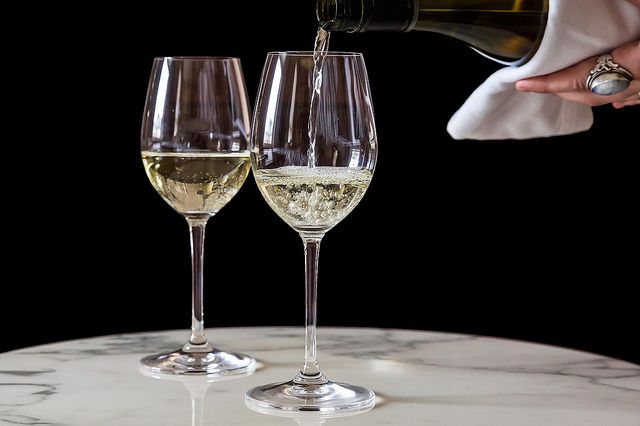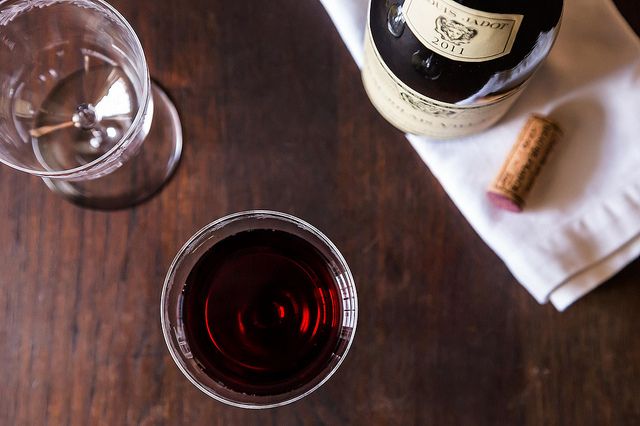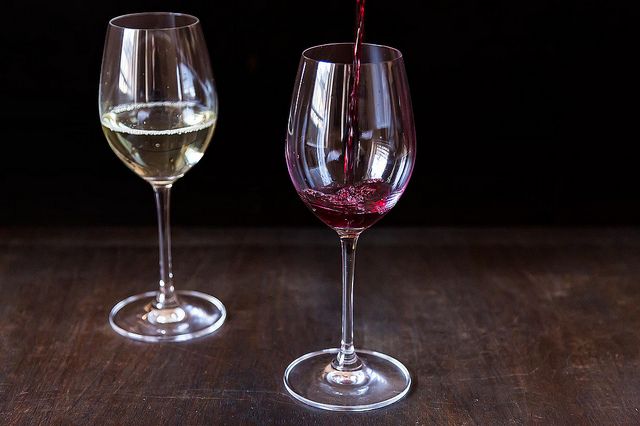Popular on Food52
21 Comments
Eenee P.
April 24, 2013
You've raised my consciousness! I am really looking forward to a trip to the vineyards around my new home (SF/East BAY/Napa). So much to learn...but it's all about liking what you drink and only drinking what you like....yes !
bsun
April 4, 2013
A good wine shop will always have someone knowledgeable to help if you don't have the time, like restaurants with good wine programs will have at least one sommelier around to help. Good wine shops will want to develop a relationship with you. You can try them out by asking them to pick a wine with your criteria and price point (elegant red wine, crisp and earthy around $15) then see how they do. Once they get to know you, your taste and budget, they will steer you to hidden gems inside their shop as well.
Cathy H.
April 5, 2013
Absolutely agree! The staff at wine shops, especially the one you pass by most frequently, are an incredibly strong ally for wine exploration. They know their inventory best, and can identify which bottles on their shelves at that moment best respond to what you're looking for. Don't be shy, talk them up! Bonus: once they know what you like, they'll think of you when they get in special deliveries that suit your taste. Which can lead to some really exciting discoveries!
ntt2
April 4, 2013
I remember we had a book that set up "tastings" of two wines and then, depending on which wine you liked better suggested the next pairing. I thought it a great way for someone starting out. Downside is that it listed specific wines and years and therefor is out of date...
Cathy H.
April 5, 2013
Neat! Can you give us some more information? Who had the book? Is some version of it still available? There are digital versions of wine recommendation engines available, but maybe this version is more low tech? Thank you!
Cathy H.
April 4, 2013
You went right to Rule Number One! Drink what you like. Of course, it helps to *know* what you like, and it sounds like your "work" at tastings have taken you a long way :-) Please keep an eye out for wines from Cahors, in the southwestern part of France. They fit your preferred taste profile of big, flavorful reds, and since it's made mostly from Malbec, the tannins are intense, so much so that a lot of the winemakers there have teeth stained purple! There's a new crop of young winemakers from the region who are making wines that are a little more toned down and able to be drunk younger than their predecessors. These younger wines are also less expensive. I'm seeing the Cahors label more and more. If you try any, please let me know what you think!
dymnyno
April 4, 2013
I agree with carswell. Sometimes you have to beware of what I call virtual wineries,ie, wineries with no vineyards of their own who buy left over juice from wineries like mine. We sold 90% of our '08 off because of smoke taint which which was bottled and sold under other labels. When wineries sell juice to other wineries the original source of the grapes is almost never disclosed. In fact when we sell our very premium grapes to another winery it is only with a contract that agrees to vineyard designation that we are named as the source.
Cathy H.
April 4, 2013
Thank you, very much, for this word of caution from someone who knows. It does happen, unfortunately, that bad or tainted juice gets into bottles. All the more reason, then, to keep track of which wines you like and which you taste that seem "off" in some way, and will know to steer clear of them in the future. Keeping track of the wines you try doesn't have to be complicated -- I've heard Instagram works well!
KateM
April 4, 2013
When I visited the Okanagan every summer, with their dizzying array of wineries from garagistes (Nichols) to the huge and beautiful (Mission Hill, complete with Chagall tapestries), I'd scan each shop's offerings, pick three medal winners, taste those and chose my favourite of the three. Paying attention to a balance of different reds, whites & rosés, I'd head home with my wine for the winter. It always seemed to impress my much-more-wine-knowledgeable friends.
Usually picking up one or two per winery, the one case I bought annually,if not sold out, was the pinot meunier from Thornhaven. Heaven in a glass.
Usually picking up one or two per winery, the one case I bought annually,if not sold out, was the pinot meunier from Thornhaven. Heaven in a glass.
Cathy H.
April 4, 2013
I would love to try this! Pinot Meunier is such an interesting grape, yet not overly used. I'll definitely seek it out. You've also offered a neat strategy for picking your own "house wine," which is especially effective when you've done the tasting for it in person and "on site," so to speak. Thank you!
KateM
April 4, 2013
You may know that the meunier ('miller' in French) refers to the underside of this varietal's leaves: they are flecked with white as though sprinkled with flour!
And thanks for the comment on my simple purchasing strategy. For someone as uninformed as I, although I still do a tasting and choose myself, I know that someone has admired these wines. The other advantage of this method is that I can try the less expensive wines, avoiding the assumption the more costly, the better, the cheaper, the worse.
And thanks for the comment on my simple purchasing strategy. For someone as uninformed as I, although I still do a tasting and choose myself, I know that someone has admired these wines. The other advantage of this method is that I can try the less expensive wines, avoiding the assumption the more costly, the better, the cheaper, the worse.
Cathy H.
April 5, 2013
Your own palate is the one that matters most! Trust it, just as you do with food... Thank you for the note on meunièr too, I didn't know that! It's why I love wine so much -- there is so very much to learn, and every bottle, every glass, even every sip is new!
MaryDD
April 17, 2013
Funny to hear someone talk about the Okanagan and Mission Hill on this site, I can see the bell tower from my deck! As a humble local, we feel fortunate to have these wineries on our doorstep. Every year there seems to be another vineyard that goes from growing their grapes for a winery, to keeping their crop and start producing the wine themselves, so there's always something new.
Cathy H.
April 17, 2013
Lucky you, Mary! That's so exciting, to have them so close to home. And I'm very curious to hear how many vineyards near you are switching from being growers to producers… That's great news for wine lovers! Thank you for sharing.
carswell
April 4, 2013
My best advice is to go to wine tastings and find out what you really like. That makes it far easier to choose wine in the long run.
For instance - my personal tastes run to big, juicy reds with lots of flavour. That lets out most French wine right off the bat, no matter how expensive. I now know, through tasting and experience, that hot country reds are where I start when I'm looking for a bottle.
That's not to say that I don't appreciate a more restrained wine or an expensive and age worthy one - but through a long stretch of tutored tastings I know the difference and I know what producers and which processes produce the tastes I like best.
For instance - my personal tastes run to big, juicy reds with lots of flavour. That lets out most French wine right off the bat, no matter how expensive. I now know, through tasting and experience, that hot country reds are where I start when I'm looking for a bottle.
That's not to say that I don't appreciate a more restrained wine or an expensive and age worthy one - but through a long stretch of tutored tastings I know the difference and I know what producers and which processes produce the tastes I like best.




See what other Food52 readers are saying.